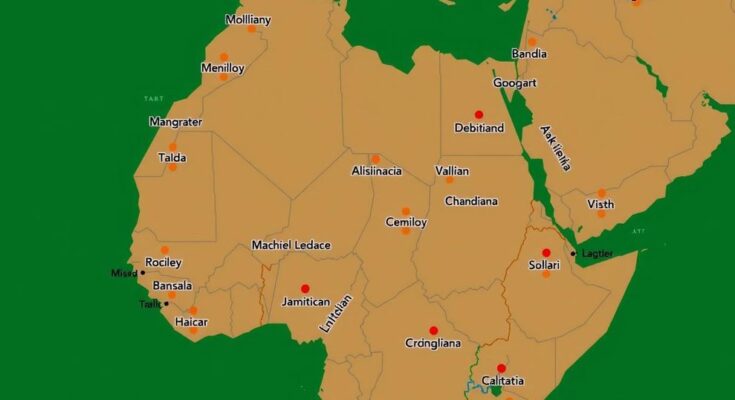The UNMISS has called for solid evidence of commitment to democratic elections in South Sudan. Nicholas Haysom emphasized the urgency as the government enters its fourth extension of the transitional period with elections rescheduled for 2026. Citizens express frustration over these delays, which threaten hopes for peace and stability in the region. UNMISS advances preparations for these elections but insists on the need for genuine political action and accountability from leaders.
The United Nations Mission in South Sudan (UNMISS) has called for substantial evidence of progress regarding the nation’s commitment to democratic elections. During a briefing to the United Nations Security Council, Nicholas Haysom, the Special Representative of the Secretary-General and head of UNMISS, indicated that time is limited for the South Sudanese government to act on its commitments, with elections now pushed to 2026. The situation is exacerbated by persistent internal conflicts that undermine hopes for peace and stability in the country and the broader East African region. Rabindra Giri, the acting spokesperson for UNMISS, highlighted the international community’s demand for genuine efforts from South Sudanese leaders towards democracy. Giri emphasized, “We must collectively seize the opportunity to make this extension the last and deliver the peace and democracy that the people of South Sudan deserve.” Meanwhile, citizens expressing their frustrations in Juba raised concerns that their leaders may not prioritize the nation’s welfare. Women’s rights advocate Nunu Diana lamented, “I think because of the extension, personally, as a young person, I have lost morale in the governance system of the country.” Similarly, Data Gordon, an advocate for peace and gender equality, asserted, “The time for political statements without tangible and time-bound action is over; for elections to take place as scheduled, the government needs to walk the talk.” UNMISS is advancing initiatives in support of the National Elections Commission, focusing on civic education and preparations for voter registration, alongside establishing a code of conduct among political entities. Haysom reinforced that this period represents South Sudan’s last opportunity to fulfill its promise of democracy, which necessitates ongoing international support and accountability for its leaders. Giri reaffirmed that there must be a commitment to genuine progress, stating, “This cannot be business as usual for the parties to the peace agreement, the political elite, the guarantors of the peace agreement or the international community.”
The topic of democratic elections in South Sudan has been a significant international concern since the nation gained independence in 2011. Following years of civil conflict and political strife, the transitional government has repeatedly extended its mandate without delivering substantial reforms. This context has led various stakeholders, including UNMISS, to urge South Sudanese leaders to demonstrate their commitment to peace and governance through concrete actions. The scheduled elections in 2026 represent a critical juncture for the nation’s future and the wider stability of the East African region.
In conclusion, the situation in South Sudan requires immediate and tangible actions from its leadership to restore citizens’ faith in governance and pave the way for democratic elections by 2026. The UNMISS has made it clear that time is of the essence, and the international community is looking for clear commitments from the South Sudanese leadership. The call for accountability, civic education, and political integrity underscores the urgency to ensure that this transitional period does not lead to another extension, but rather to the establishment of lasting peace and democracy.
Original Source: www.voanews.com




